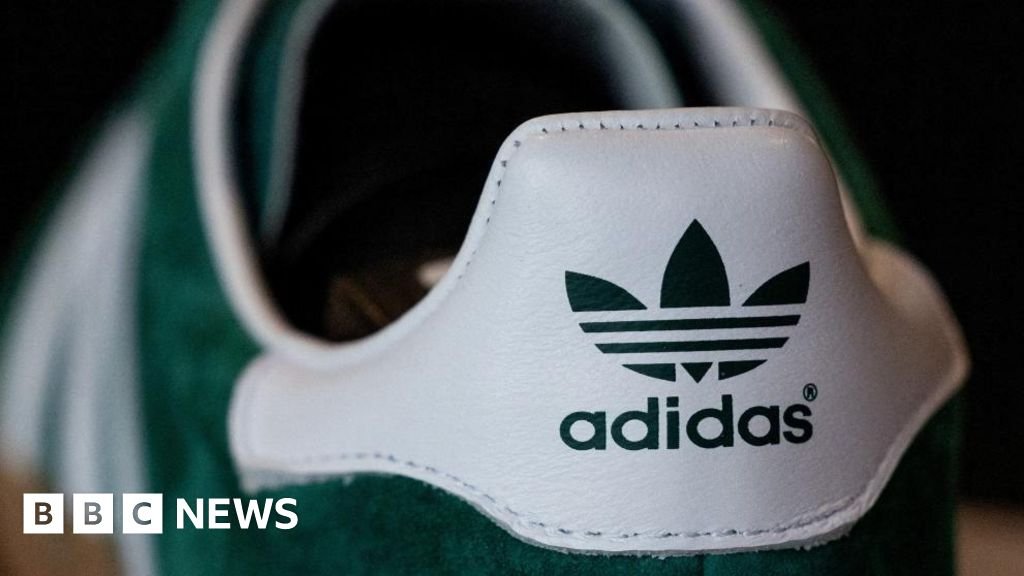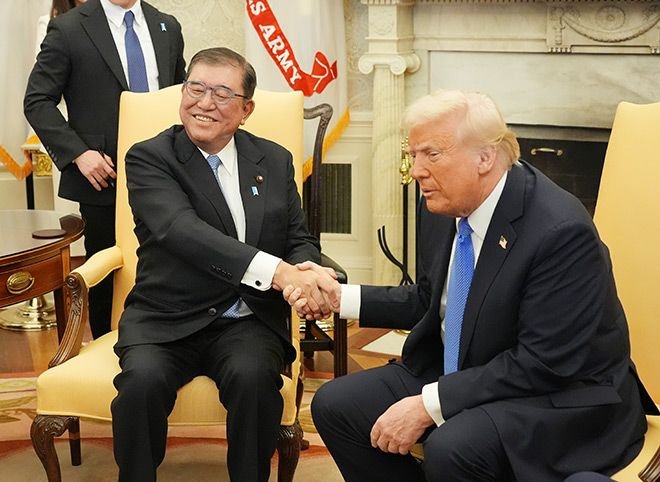US President Donald Trump has announced a series of new import taxes, arguing these will boost American manufacturing and protect jobs.
But these tariffs have thrown the world economy into chaos and prices for many products are set to rise for US consumers.
Tariffs are taxes charged on goods bought from other countries.
Typically, they are a percentage of a product's value.
A10% tariff means a $10 product would have a $1 tax on top – taking the total cost to $11 (£8.35).
Companies that bring foreign goods into the US have to pay the tax to the government.
They may pass some or all of the extra cost on to customers. Firms may also decide to import fewer goods.
Trump says tariffs will encourage US consumers to buy more American-made goods, increase the amount of tax raised and lead to huge levels of investment.
He wants to reduce the gap between the value of goods the US buys from other countries and those it sells to them. He argues that America has been taken advantage of by "cheaters" and "pillaged" by foreigners.
The US president has made other demands alongside tariffs.
When he announced the first tariffs of his current term against China, Mexico and Canada, he said he wanted them to do more to stop migrants and illegal drugs reaching the US.
China:
Chinese imports to the US include everything from iPhones and electrical goods to children's toys and clothing.
Trump unveiled a 10% tariff on goods from China on 4 February, which doubled to 20% a month later.
On 9 April, he increased tariffs to 145% for most Chinese goods – with certain products facing a 245% tax.
An exemption for Chinese goods worth less than $800 ended on 2 May. Shipments now face 90% duty or $75 per item – increasing to $150 per item after 1 June.
In response to Trump's measures, China has introduced 125% tariffs on US imports.
Trump also imposed significant tariffs on China during his first presidential term. These were expanded by his successor Joe Biden, which cut the amount America imports from Beijing.
But the US still buys much more from China ($440bn) than it sells to it ($145bn).
Canada and Mexico:
Canada and Mexico were also targeted by Trump in February, when he introduced a 25% tax on imports from both countries and a 10% levy on Canadian energy.
There have been a number of delays and exemptions to these tariffs.
In response, Canada introduced a 25% tax on some vehicles imported from the US on 9 April.
Steel and aluminium:
A 25% import tax on all steel and aluminium entering the US – including products made from these metals – took effect on 12 March.
Cars:
Since 2 April, foreign-made cars have faced a 25% levy. This was extended to cover imported engines and other car parts on 3 May.
On 29 April, Trump softened the rules to reduce the effect on US car companies.
10% 'baseline' and higher tariffs:
On 5 April, Trump announced most countries – including the UK – would face a 10% "baseline" tariff on all goods sent to the US.
On 9 April, he unveiled a range of much higher tariffs for about 60 countries, described as the "worst offenders" among America's trading partners.
Hours later he announced a 90-day pause, during which the 10% "baseline" rate would be paid by all named countries apart from China.
In response, many countries are working on retaliatory measures.
Smartphones and computers:
An exemption for some electronic devices from China and elsewhere – including smartphones and computers – was announced on 12 April.
Trump later warned the concession could be short lived.
Films:
On 4 May, Trump said he wanted to introduce a 100% tariff on foreign films to boost the US movie industry.
Trump's various announcements have caused volatility on global stock markets, where firms sell shares in their business. Many people are affected by stock market price changes, even if they don't invest in shares directly, because of the knock-on effect on pensions, jobs and interest rates.
The value of the US dollar, usually considered a safe asset, has also fallen in recent months.
The International Monetary Fund (IMF) downgraded its prediction for global economic growth in 2025 as a result of the tariffs.
It expects America to be hardest hit, and says a US recession is now more likely in 2025.
As Trump marked 100 days in power, the commerce department said the US economy shrank in the first three months of 2025, after strong growth in the previous quarter.
The president insists his policy is working, but influential voices within his own Republican Party have joined opposition Democrats and foreign leaders in attacking the measures.
Price increases are expected across a range of imported goods, as businesses pass on some or all of their higher costs.
Adidas and Barbie maker Mattel are among the global firms which have said they will charge American customers more.
Some companies may also decide to import fewer foreign goods, which could make those that are available more expensive.
The costs of goods manufactured in the US using imported components are also expected to rise.
For example, car parts typically cross the US, Mexican and Canadian borders multiple times before a vehicle is completely assembled.
The new tariffs have also resulted in tighter customs checks at the US border, leading to delays.
The UK exported around £58bn of goods to the US in 2024, mainly cars, machinery and pharmaceuticals.
Prime Minister Sir Keir Starmer said "clearly there will be an economic impact" from the 10% tariff, as well as the earlier taxes targeting steel, aluminium and car imports.
Carmaker Jaguar Land Rover said it would "pause" all shipments to the US as it worked to "address the new trading terms".
The UK is in the process of trying to negotiate a trade deal to soften the financial blow from the tariffs – including the proposed levy on foreign films, which could damage the UK entertainment industry.
Ministers have so far not announced any taxes on US imports. However, they are drawing up a list of US products which could be targeted.
Economists have warned US tariffs could knock the UK's economy off course and make it harder for the government to hit its financial rules.
Global trade experts have told the BBC they expect the negotiations to take several months.
The politicians, who had been sheltering at the Argentinian embassy in Caracas for over a year to avoid arrest, are now on US soil.
Cory Bowman, who was endorsed by Vance, will face off with the city's Democratic incumbent mayor after finishing second in Tuesday's primary.
The incident traumatised air controllers, and triggered delays at one of New York's busiest airports.
The newly-elected prime minister repeated that Canada is not for sale during his visit to the White House.
Copyright 2025 BBC. All rights reserved. The BBC is not responsible for the content of external sites. Read about our approach to external linking.
What are tariffs, how do they work and why is Trump using them? – BBC



